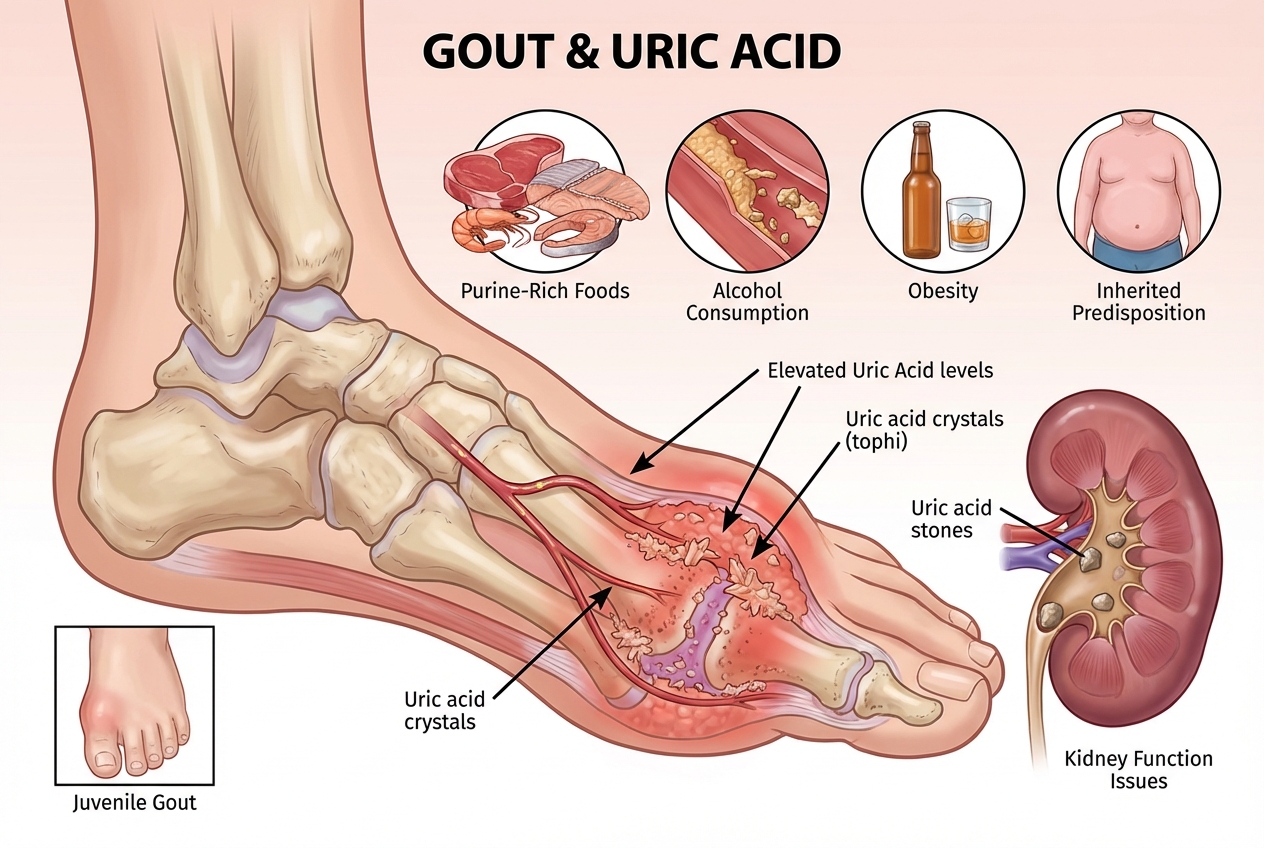
Gout is a medical condition marked by unusually high levels of uric acid in the blood, leading to repeated episodes of joint inflammation, known as gouty arthritis. This condition also results in the formation of hard uric acid deposits around the joints and can cause reduced kidney function and kidney stones. Uric acid is a byproduct of purines, which are found in many foods. A predisposition to developing gout and high blood uric acid levels, known as hyperuricemia, is often inherited. Factors that can contribute include obesity, alcohol consumption, poor kidney function, and certain medications. The most definitive way to diagnose gout is by detecting uric acid crystals in the joints, bodily fluids, and tissues. Although uncommon, gout can occur in young children, affecting any joint, a condition referred to as juvenile gout. In most situations, similar to adults, the symptoms manifest primarily in the feet. Genetic disorders that lead to excessive uric acid production, such as Lesch-Nyhan syndrome and PRPP synthetase overactivity, may cause juvenile gout. Some kidney diseases can also result in gout in children.




